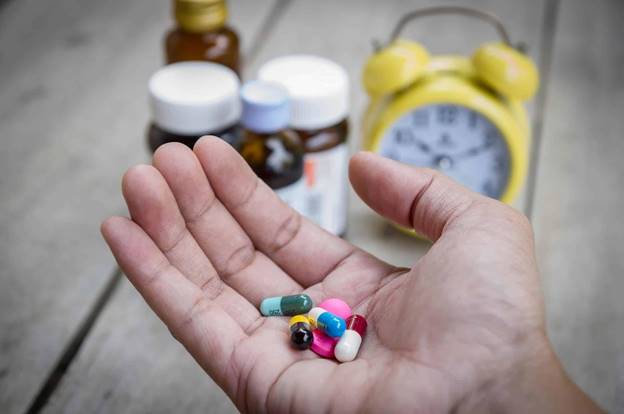It might be challenging to keep track of your pharmaceutical prescriptions. It might be challenging to stay on top of the best practices for increasing your medication’s efficacy while limiting adverse side effects given the abundance of alternatives and constantly evolving regulations. To assist you to navigate through successful medication management tactics that are designed particularly for pharmacotherapy therapies, we’ve listed a number of crucial pointers.
Knowing how and when to take your medications, classifying your medications by kind and time of day, and arranging your medications accordingly are all crucial details that may greatly improve your ability to dutifully and effectively follow your routine. So, continue reading if you’re seeking for small but impactful adjustments to better manage your drug use.
1. Keep A List Of All Your Pharmacotherapy Medications And Their Dosages:
It’s simple to lose track of the prescriptions you take and how frequently. Keep a complete list of all the medications you are taking, together with dose information and usage instructions. This is a very useful resource for both you and any doctors who might want details about your medical history. The best approach to make sure you are taking the right prescription is to do this. Another benefit of making a list is that you can take it with you everywhere you go.
2. Understand How Each Drug Works And Its Possible Side Effects:
You’ll be better able to decide what’s best for your health if you understand each drug’s purpose and any potential negative effects. Ask your pharmacist or doctor about the medication’s mechanism of action, whether it interacts with any of the other medications you take, what safety measures should be taken while taking it, and how long it will take for the medicine to reach its peak efficacy.
By being aware of this information, you may make sure that you continue your pharmaceutical journey in safety and good health.
Furthermore, the board certified pharmacotherapy specialist can provide guidance on drug selection and interactions.
3. Take Your Medications At The Same Time Every Day:

Choose the optimum time of day for taking your medications, and stick to it! You can keep track of when you last took a dosage by taking your prescriptions at regular intervals, which also increases the likelihood that you will take them exactly as directed.
Having this level of organization also makes it simpler to remember how frequently and when to take your medications. Additionally, a common error is taking all of your prescriptions at once. Your body may get overworked as a result, making it more difficult to control the negative effects.
4. Identify Your Medications By Type And Time Of Day:
A good approach to remembering when to take your medications is to organize them by kind and time of day. In order to remember how much and when to take each prescription, label each container with the relevant dose information.
Additionally, many pharmacies provide customized pill boxes that let you keep a few weeks’ worths of pills in compartments that are already split for each day or dose. Additionally, there are applications and services that let you manage your meds online if you don’t enjoy using paper labels.
5. Rely On A Support System:
Having a support system in place might be helpful while managing pharmacological regimens. To assist you to remember to take your prescription on time or to inquire about how your therapy is doing, ask your family or friends to aid. You may be more likely to adhere to your doctor’s recommended course of action if you have a trustworthy companion who is aware of your medical requirements.
When talking to a pharmacist or other healthcare provider about prescription refills or other adjustments linked to pharmacotherapy therapy, for example, you might want to think about bringing along a companion if at all feasible.
6. Organize Your Medicine Cabinet:
If required, designate a space in your house specifically for keeping prescription containers and other associated items. You can keep your prescriptions accessible and organized by doing this. If you have several different sorts of medication, think about labeling the dividers to make it simpler to separate them.
Keeping track of the expiry dates or refills for many medicines you take might be made easier by keeping an inventory of your prescriptions.
7. Check for Drug Interactions:
Drug interactions might happen if you take different medications at once. Always check with your doctor or pharmacist to be sure that the drugs are safe to take together and won’t have any negative side effects before starting a pharmacotherapy regimen.
It’s crucial to let your doctor know about any over-the-counter vitamins, supplements, or herbal therapies you may be taking as well. The dosage of each prescription should also be carefully monitored because taking too much of a drug might have negative effects.
8. Dispose Of Expired Or Unused Medications Properly:
It’s crucial to properly dispose of any unused or expired medications. You may inquire about disposal alternatives for medications at your neighborhood drugstore. Additionally, you can go online for local drug return options or mail-back programs that have been approved by the Drug Enforcement Administration (DEA). These services are frequently provided without charge.
Additionally, as it might damage water supplies and wildlife habitats, medicine should never be flushed down the toilet or drain.
9. Store Medications In A Cool, Dry Place:
To keep medicines effective, they must be kept in a cold, dry environment. Despite some needing to be refrigerated, many pharmaceutical medications should be stored at room temperature. For storing directions, always read the label or product box.
Additionally, it’s crucial to keep any prescriptions out of the reach of kids and animals. Consider utilizing a lock box that might assist keep your prescriptions secure if you can’t find them.
Conclusion:
In conclusion, the aforementioned advice is crucial for good medication management. These suggestions can aid you in your quest for effective medication management, from knowing when and how to take your drugs to categorize and arranging them to correctly disposing of them.
Ultimately, it’s critical to remember that creating a plan with your healthcare team that works best for you is the most effective strategy to manage and administer pharmacotherapy.










